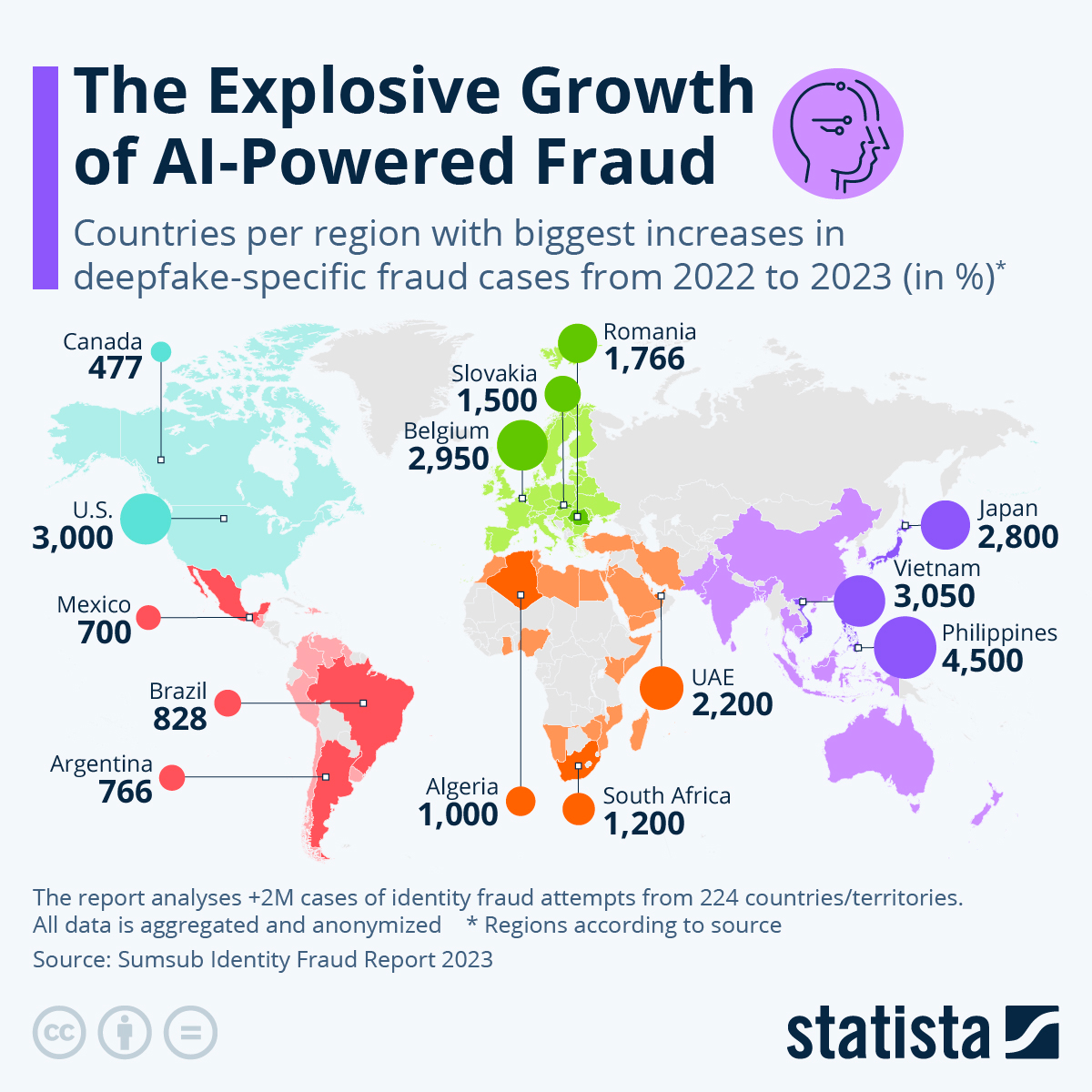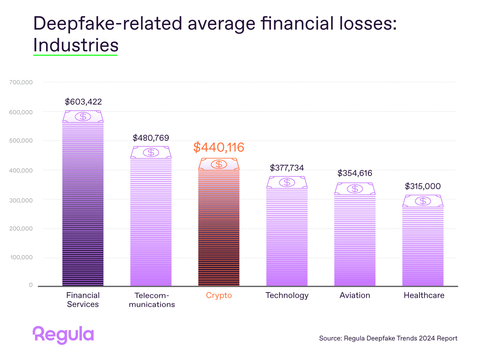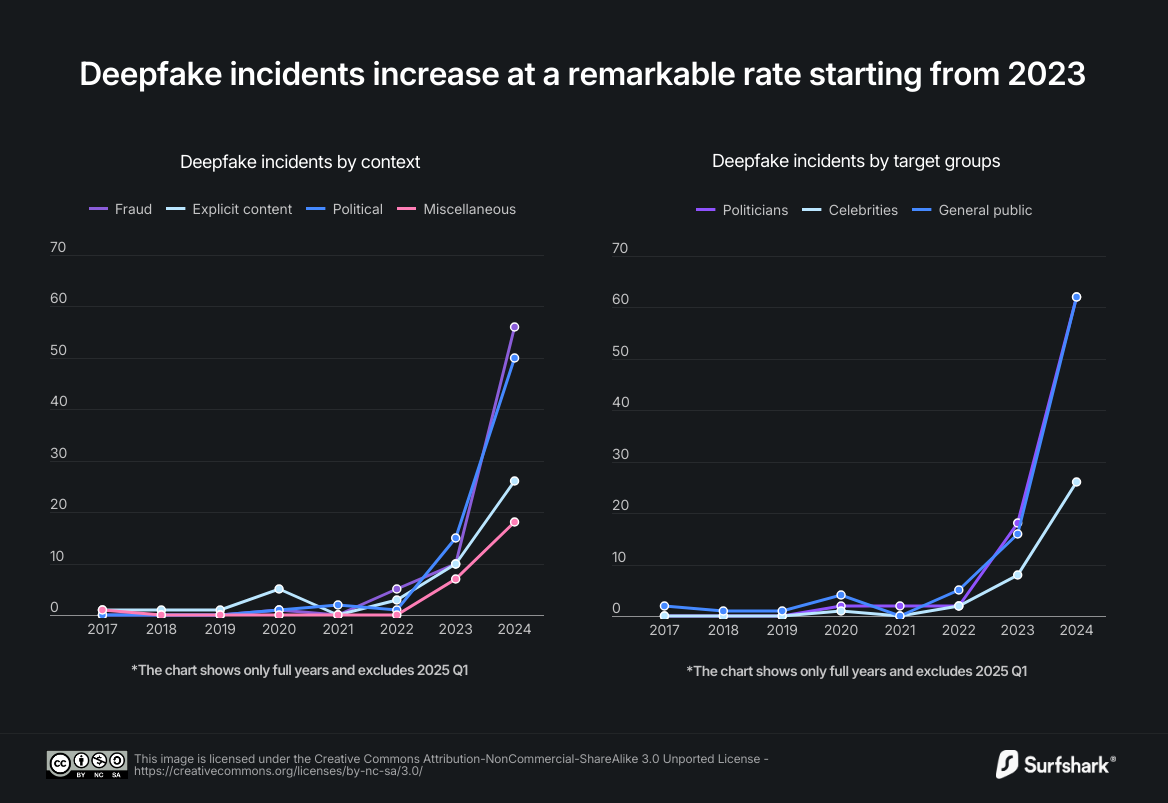The Rising Threat of Deepfake Scams
)
Deepfake technology, powered by artificial intelligence (AI), is rapidly evolving, presenting a significant and growing threat to financial institutions and their customers. These sophisticated techniques can create highly realistic fake videos, audio recordings and images, making it increasingly difficult to distinguish between genuine and fraudulent communications. This has led to a surge in deepfake scams targeting financial institutions, businesses and individuals, resulting in substantial financial losses and erosion of trust.
The Mechanics of Deepfake Fraud
Deepfake scams often involve manipulating existing media or creating entirely new synthetic content to impersonate trusted individuals, such as executives, family members or customer service representatives. Fraudsters use these impersonations to:
- Trick individuals into transferring funds: Criminals may use deepfake audio or video to convince victims to make unauthorized payments. For example, a financial worker in Hong Kong was tricked into paying out $25 million (source) after fraudsters used deepfake technology to impersonate the company's chief financial officer.
- Bypass identity verification systems: Deepfakes can be used to create fake IDs or circumvent biometric authentication measures, allowing criminals to open fraudulent accounts or access existing ones.
- Spread misinformation and manipulate markets: Deepfakes can be used to create false narratives that can destabilize financial markets. In one instance, deepfake images of a Pentagon explosion (source) caused a drop in the Dow Jones Index within minutes.
- Exploit personal relationships for financial gain: Scammers may use deepfakes to impersonate family members or romantic partners, soliciting money under false pretenses.
` 
The Impact on Financial Institutions
Financial institutions are particularly vulnerable to deepfake fraud due to their reliance on trust and authenticity, however risk is rising for all businesses. The consequences of successful deepfake attacks can be severe, including:
- Financial losses: Deepfake fraud has resulted in billions of dollars in losses for businesses and their customers. One report indicates that the financial sector experienced an average loss of $600,000 per company (source) due to deepfake fraud.
- Reputational damage: High-profile deepfake scams can erode public trust in financial institutions, leading to customer attrition and decreased market value.
- Operational disruption: Responding to and recovering from deepfake incidents can strain limited cybersecurity budgets and resources.
- Increased regulatory scrutiny: Financial institutions that fail to adequately protect against deepfake fraud may face fines and increased oversight from regulatory bodies.

The Impact on Customers
Customers are also at significant risk from deepfake scams, facing potential:
- Financial losses: Individuals can be tricked into transferring large sums of money to scammers impersonating trusted contacts.
- Identity theft: Deepfakes can be used to steal personal information, leading to identity theft and further financial harm.
- Emotional distress: Victims of deepfake scams may experience significant emotional distress and trauma.
Key Statistics
- Deepfake fraud attempts in the financial sector have increased by 2137% (source) in the last three years.
- The financial sector is one of the most targeted industries, accounting for 40% of all deepfake attacks (source).
- Fraud-related losses tied to deepfakes reached $12 billion in 2023 and are projected to soar to $40 billion (source) by 2027.
- The average loss for financial institutions due to deepfake fraud is around $600,000 per company.

Protecting Against Deepfake Scams
Financial institutions and customers must take proactive steps to protect themselves from deepfake scams. These include:
- Implementing advanced detection technologies: Financial institutions should invest in AI-powered tools that can detect deepfakes in real-time.
- Strengthening identity verification processes: Multi-factor authentication, liveness detection, and other advanced verification methods can help prevent deepfakes from bypassing security measures.
- Educating employees and customers: Training programs can help individuals recognize the red flags of deepfake scams.
- Promoting a culture of skepticism: Individuals should be wary of unsolicited requests for money or personal information, especially if they seem unusual or urgent.
- Verifying information through multiple channels: Always confirm the legitimacy of requests through alternative channels, such as contacting the supposed sender directly.
Educate With Bite-Sized Video
EPCOR is committed to raising awareness about various fraud schemes and scams, including those involving deepfakes. Their latest Did You Know? video provides valuable information on how to spot and avoid these scams. The bite-sized format of the Did You Know? series is perfect for sharing education forward with staff and clients to raise awareness and prevention tips for deepfake and other fraud scams. Explore the video library on EPCOR’s YouTube channel: @EPCORPymnts.

About EPCOR® – Your Electronic Payments Core of Knowledge
EPCOR is a not-for-profit payments association that provides payments expertise through education, advice and member representation. EPCOR assists banks, credit unions, thrifts and affiliated organizations in maintaining compliance, reducing risk and enhancing the overall operational efficiency of the payments systems. Through our affiliation with industry partners and other associations, EPCOR fosters and promotes improvement of the payments systems which are in the best interest of our members. For more information on EPCOR, visit www.epcor.org.
Brandie Thacker | President & CEO | EPCOR





